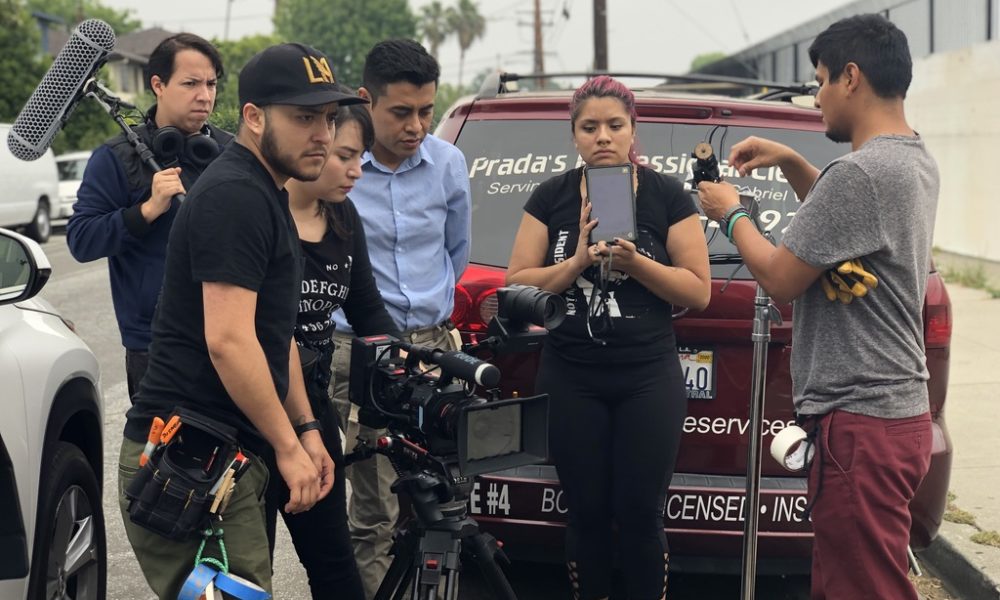As Latinx Heritage Month comes to an end, Los Angeles based filmmaker and writer Armando Ibañez joined Daily Forty-Niner Arts and Life editor Paris Barraza for a Q&A on representation of people of color and the undocumented community in the media.

Ibañez is a graduate of Cerritos College and created the YouTube series “Undocumented Tales” in 2016, which follows the fictional life of Fernando Gutierrez, an undocumented queer immigrant. The show is based upon Ibañez’s experiences as a member of the undocumented community living in the U.S.
Ibañez’s most recent work includes “Freedom For All,” a short film that advocates for the rights of undocumented immigrants and “Before and After Dentention,” a documentary about transgender women pursuing a better life in the U.S. in spite of the transphobia, racism and discrimination that they face.
What are some of the ways that people outside of the Latinx community can better support Latinx members everyday, not just during Latinx Heritage Month?
“Informing themselves of the privileges that they have. In this case, one of the biggest example[s] is voting, right? Sometimes people are not interested in politics, they’re not interested in voting, because they feel like the outcome of elections won’t affect them, but it does affect other people. In this case, immigrant communities, Latinx communities and undocumented queer communities who, in the last years, we have seen how the changes in law have been affecting the lives of millions of people, especially underrepresented communities. So for me, I say, educate, continue listening to movements that [you] don’t understand, and to try to just [consider] the privilege that other people don’t have access to.”
In your experience, in regards to the film industry, what do you believe are some of the biggest challenges that people of color face that their non-POC peers do not?
“The lack of opportunity first. The lack of representation behind and in front of the camera, that is one of the biggest problems that we have nowadays. And also, I feel like times are changing but we, people of color, are the one pushing for that change, right? But I think that many more people in the industry, people who are in higher places, can do those changes. We can bring now representation in front and behind the camera in order to create equality, equality in job opportunities, equality [in] storytelling, equality in representation. It’s important because right now, representation means to someone that their life matters, that their life is important.”
“Undocumented Tales” first premiered in 2016. In the past four years, do you feel that there has been any progress made in the media representing undocumented individuals or has it stayed the same?
“I feel [that] there has been progress in terms of how [the] media depicts immigrants and underrepresented communities. But, not a lot. People are still putting that undocumented character as the token, or just to check the fact that they don’t go really deep, they don’t dig really deep into what the character is about…Up until today, I feel like now it’s a stereotype to show an undocumented immigrants just crying, crossing the border and getting deported. How about showing characters that are more than that, right? And I feel like yes, progress has been made, not as much as we would like to but I feel like, thanks to artists, thanks to undocumented artists who have been able to have agency and been able to say, ‘That’s not how we would like to see ourselves on mainstream media,’ and because many others have been pushing for that. That’s why we have been, now, able to be represented in different ways.”
For the third season of “Undocumented Tales,” you were able to bring on a crew that was comprised of members of the undocumented community. How much more special or rewarding did that make “Undocumented Tales” feel?
“Just the fact that I had the opportunity to give a platform, to give a space for queer and immigrant communities to come feel like they belong in this set and feel like they can create change by being part of this amazing project and that knowing that we’re not only creating change in front of the camera but by giving opportunities to amazing artists that already have the talent and the skills…they just don’t have opportunities. In Hollywood, if you don’t have a big resume, people don’t hire you. But, they’re not going to hire you because they don’t give you the opportunity to create a resume.”
Are there other examples of fiction film shows books right that you feel are representative of the undocumented community that you would like to share with our readers?
“The TV show ‘Gentefied’ on Netflix in general because it talks about the undocumented community without talking about undocumented community. The writer has done such an amazing job that they don’t talk about undocumented issues and at the end, they give us this twist to let us know that they’re actually talking about the undocumented community. I think that was very smart…Right now I’m reading a book. It’s called ‘Children of the Land’ by Marcelo Hernandez Castillo and he narrates his childhood as an undocumented immigrant and that book really is in my heart.”





Whata hell is Latinx ??